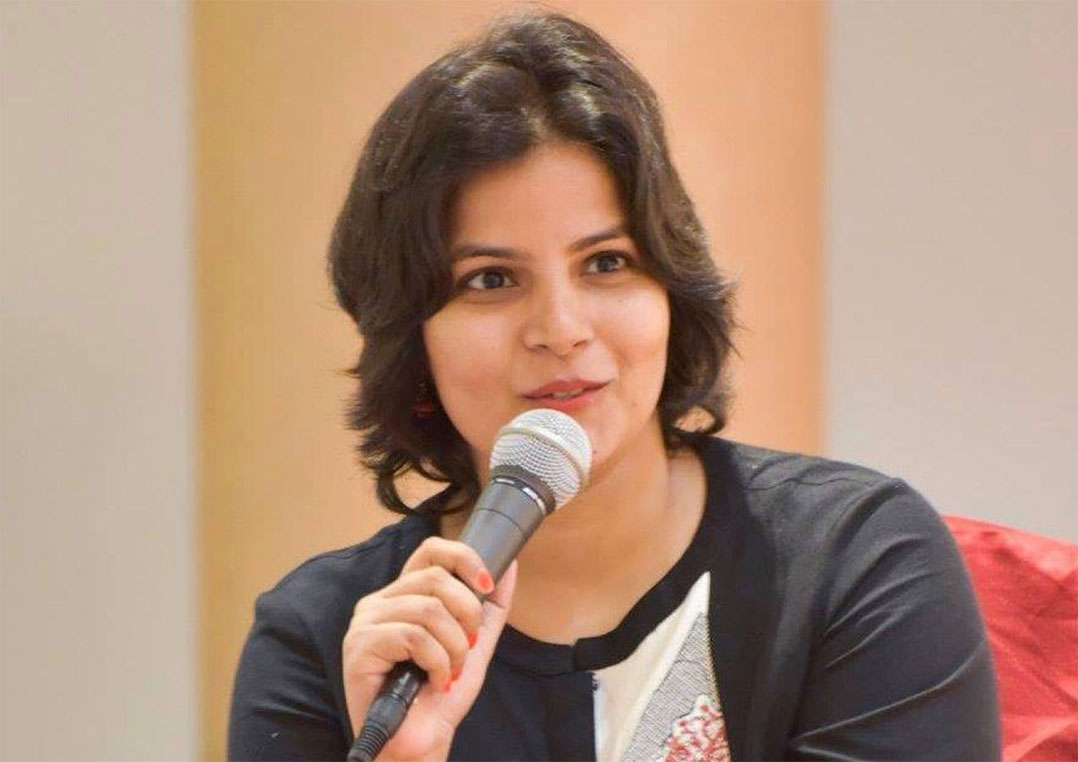Imprints
from Formative Years:
My first job
profile at The Humsafar Trust (an LGBTQIA+ NGO) involved transcribing
interviews of prominent LGBTQIA+ activists. Listening to them inspired me to do
more for my community. This eventually led me to be more involved in building
community support groups and do advocacy work. Meeting people from
disadvantaged backgrounds made me recognize my privilege and drove me to speak
publicly about my sexual identity. Other than this, watching queer films at the
first Queer Nazariya and Kashish Queer Film Festival also had a profound impact
in me. Characters from these films really resonated with me and pushed me to be
more open and proud. The personal shift in me made me believe in the power of
the medium and hence also the drive to make them.
Embracing
the Warrior Within:
The challenges I have
faced forced me to accept my reality; that of being bisexual and polyamorous.
Building courage has helped me tackle them head-on, at my pace. This has taken
some time to cultivate. It is the everyday experience of pushing myself out of
my comfort zone and being vulnerable that helps with this. This is very much
rooted to my childhood where being honest was a highly regarded virtue.
Reformation
through Filmmaking:
The portrayal
of the community continues to largely be stereotypical and filled with
prejudice & misconception. Barring 3-4 Bollywood films in the recent past,
a majority of the mainstream representation of female/queer/non-conforming desire remains hyper-sexualized and dehumanized. The films about the community
at large only highlight violence and harassment, almost unconsciously
glorifying them. I want to challenge this representation and build my own
narrative of living in and being a part of the Indian queer community. I want
stories of empowerment, love, and desire to also find mainstream focus. I want
to offer hope to young queer Indians about a future that is dignified and
liberated through my films.
Significant
Barriers faced by LGBTQ+:
The most significant
barrier is a lack of constitutional rights. The country still does not have a
law that is anti-discrimination. Basic rights such as the right to marry,
adopt, to the property are still unavailable. The current protection of the transgender
rights bill is not trans-friendly. Besides these legal barriers, there is also
not enough conversation on gender and sexuality, leading to familial violence
and violence in social spaces such as educational institutions, healthcare
settings, workplaces, and faith gatherings. The dialogue on diversity and
inclusion has seen a major upheaval in the years since the decriminalization of
the community in 2018. Scores of companies have been part of LGBTQIA+ job
fairs. There is also a push in sensitization during the pride month. However
this is largely restricted to MNCs. Small and medium scale Indian businesses
are hardly/not conversing about queer inclusion in their workforce.
Insanely
powerful lessons from my Mentor:
In my experience of advocating for the cause around the country, I have learnt that most Indians are open to conversing about sex, gender and sexuality with informed experts. It is the leadership that is preventing conversations owing to a fear of their image or of a fear of adverse feedback. This needs to change. Only when the leadership of various stakeholders is open about its position, can things change swiftly. This includes politicians, lawmakers, CEO’s, social change agents and influencers. My mentors Vivek and Paromita have played a pivotal role in the person I am today. Vivek Anand, CEO, The Humsafar trust entrusted me with responsibilities that pushed me to connect, build and work with communities. He built the confidence in me to experiment in areas that are new for me. Assisting Paromita Vohra (Filmmaker and Writer) introduced me to her worldview on feminism and sex-positivity which are very core to my work. Both of them have coached me through and out of troubling circumstances and have helped me believe in myself. They continue to be my role models.

